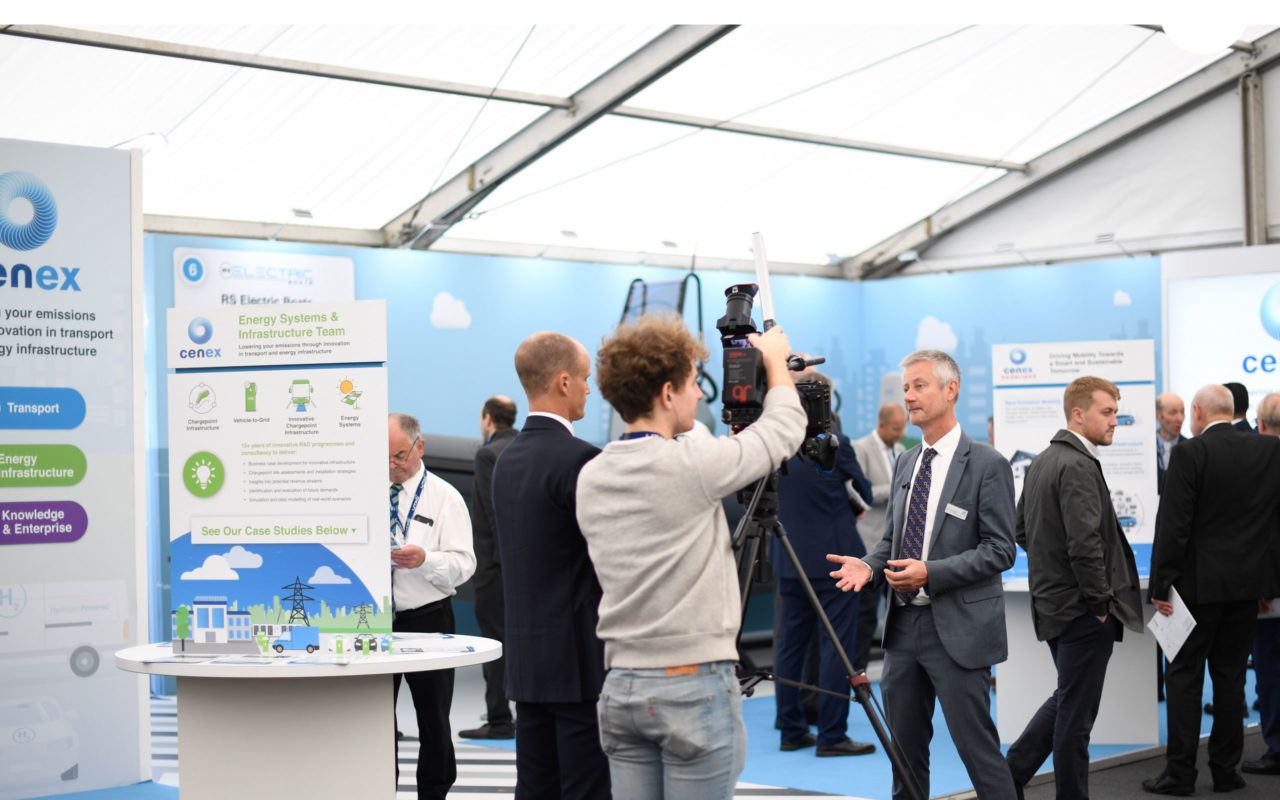
- Category:
- News
Cenex Electric Vehicles deployed to measure air quality in Leicester
Scientists from the University of Leicester will be taking to the streets in electric vehicles (EV’s) fitted with specialised air monitoring sensors, with the intention of measuring the extent of air pollution in city environments.
The Air Quality Group at the University of Leicester has collaborated with Cenex, the UK’s First Centre of Excellence for Low Carbon and Fuel Cell technologies, who specialise in bringing new low and zero emission vehicle technologies to the UK roads.
As part of the project, the University of Leicester has designed and installed special sensors into EV’s that can measure pollutant concentrations around the city. The information from these sensors will provide insight into the quality of the air we inhale in polluted urban areas.
Dr Roland Leigh from the Department of Physics and Astronomy at the University of Leicester, who is leading the project, said: “Electric vehicles are part of the solution to urban air quality issues. A mobile air quality monitoring platform, such as a specially designed electric car, is highly valuable to the scientific study of urban air quality.
“By monitoring air quality as a seamless part of our daily transport system, we are providing a cost-effective way to help inform future policy and operational systems.”
A charging point for the Cenex branded Mercedes Smart EV’s will be installed on the University’s campus as a pilot study. The objective is to encourage and facilitate future uptake of EV’s by staff and students. Additional charging points will be installed on the University’s campus in the future.
“Zero emission vehicles such as electric cars are vital in measuring the quality of air in urban environments, as they do not add further emissions of nitrogen dioxide and other key pollutants, which will allow for a more accurate reading of gathered data,” added Dr Roland Leigh. “It is important that we establish how polluted our cities are based on current transportation methods and develop new ways in which we can travel to enable more sustainable cities in the future.”
Robert Evans, CEO of Cenex said, “Cenex is excited to be working with the University of Leicester on this particular project, urban air quality continues to remain high on the political agenda and a major public health concern. In order to help bridge the gap between road users and the uptake of EV’s, there needs to be a greater understanding of the environmental and economic advantages zero emission vehicles can bring. We have no doubt the results of this project will add to the public understanding of air pollution and further encourage the adoption of zero emissions vehicles.”
The research has received funding from the Natural Environment Research Council’s Knowledge Exchange budget.